Global Ocean Observing System
GOOS is a permanent global system for observations, modeling, and analysis of marine and ocean data.
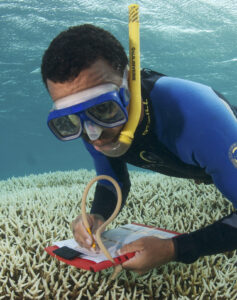
Urgent collaboration between nations needed to save marine life, from tropical reefs to deep sea ecosystems
Our ocean is estimated to be home to somewhere between half and a million marine species. The range in these numbers illustrates the significant gaps that still exist in our knowledge of the state of marine life, from coral reefs to the deep sea bottom. But now nations have a new opportunity to work together […]
Read more »Upcoming Ocean Teacher Global Academy Training Course on Ocean Data Management for Researchers ->
Applications are open for the upcoming training course offered by the Ocean Teacher Global Academy (OTGA) on Ocean Data Management for Researchers to be held on 3-7 December 2018 at the IOC-UNESCO Project Office for IODE in Oostende, Belgium. Deadline: 15 October 2018. This training course is aimed at researchers at the post-graduate level and provides a comprehensive introduction […]
Read more »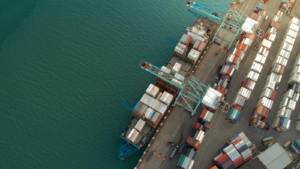
United States Government invests $3.9 million for Ocean Enterprise engagement
DetailsPublished: 27 September 2023 U.S. Inflation Reduction Act will support efforts by its National Oceanic and Atmospheric Administration (NOAA) to accelerate growth in the ocean and coastal technology and information economy. The funded project expands upon the Dialogues with Industry series launched in 2022 by the Global Ocean Observing System (GOOS), Marine Technology Society (MTS), National Oceanic and […]
Read more »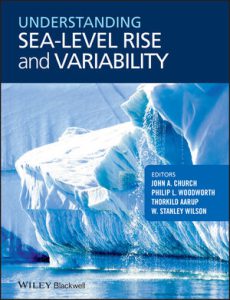
Understanding Sea Level Rise and Variability
The book, an outcome of the World Climate Research Programme workshop in 2006, identifies the research and observations required to reduce uncertainties in our understanding of sea-level rise so that more reliable future projections can be made. More information about the WCRP workshop and book http://wcrp.ipsl.jussieu.fr/Workshops/SeaLevel/index.html Download Policy Brief English PDF
Read more »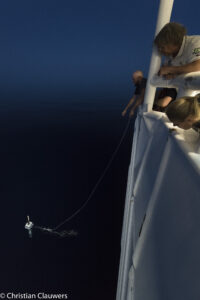
Under the surface: When a cruise through the Mediterranean Sea is not exactly a holiday
Day and night, a group of scientists are gliding through a special route across the Mediterranean Sea, stopping every 25 nautical miles to measure important parameters, from the surface to the 3 km deep bottom. They undertake this journey every 5 to 8 years – not only to document the effects of climate change today, […]
Read more »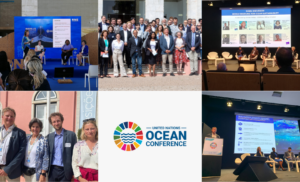
UN Ocean Conference 2022: Observations are vital to face challenges and achieve sustainable development
More than 6,000 participants from a variety of sectors gathered in Lisbon during the last week of June for what could be called the principal event highlighting the importance of the ocean to society: the United Nations Ocean Conference 2022. Under-Secretary-General for Legal Affairs and United Nations Legal Counsel Miguel de Serpa Soares stated in his […]
Read more »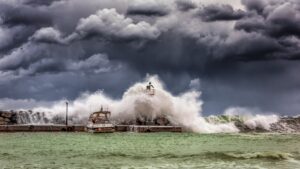
Tropical cyclones: Why we must observe the ocean to better protect people on land
Lessons learned from ocean observations during hurricanes Irene and Sandy pushed the U.S. to deploy a fleet of underwater robots during every hurricane season. As extreme weather events are becoming more frequent due to climate change, is it time to expand this hurricane forecasting capacity to other regions? 11 years after Hurricane Sandy hit the […]
Read more »TPOS 2020 Report Open for Public Review
The first of three TPOS 2020’s Project Level Reports is open for public review and comment through October 2016. While the focus and guidance of the Project Level Reports will be on the TPOS Backbone, they will also cover all activities of TPOS 2020, including key initiatives, outstanding science questions, and an indicative timeline for the remaining […]
Read more »
Towards Integration of Ocean Observing Networks
Integration was a word that came up often during the development of the Framework for Ocean Observing that now guides GOOS. We realize it has many dimensions in an observing system: across disciplines; parts of the system including oversight, implementation and innovation; from coasts to open ocean; and across different in situ and satellite observing networks. […]
Read more »The Physics and Climate advisory panel to the Global Ocean Observing System (OOPC) is seeking experts to serve on the panel.
The Ocean Observations Panel for Climate (OOPC) is a scientific expert advisory group to the Global Ocean (GOOS) and Global Climate (GCOS) Observing Systems and the World Climate Research Program (WCRP). OOPC is a charged with leading the delivery of ocean physics/climate observation requirements, aiding in the development of strategies for evaluation and evolution of the system, […]
Read more »